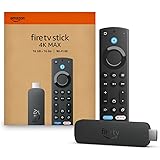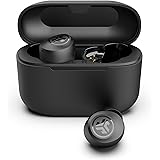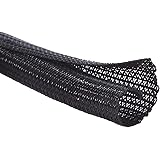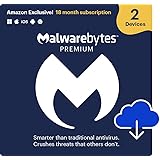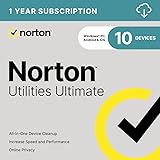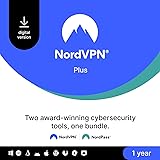Tips for Financially Responsible Credit Card Use
What is Credit Card Debt?
Credit card debt is a kind of unsecured loan that accumulates as you use your credit card to purchase items and services. Credit card debt can be acquired in many different ways. It can be as easy as one-time use, or it could be something that accumulates with time. The most common way people acquire credit card debt is by making minimum payments on the balance each month, but not paying off the full balance. This type of debt can affect your life in many different ways, including preventing you from getting approved for a mortgage or other types of loans, preventing you from buying a house, and blocking you from obtaining certain jobs. Credit card debt usually requires a minimum payment each month in order to keep the account active. If a credit card holder does not meet the minimum payments on time, then he or she will get charged an interest rate of as high as 18% and could potentially be charged a higher rate if they fall behind in making their monthly payments. Interest rates are usually calculated with an APR that is variable based on how long it takes for the debt to be paid off depending on the person’s situation (i.e., how much they owe and how long to pay)
Tips for Using Credit Cards Responsibly
Credit cards are a convenient way to make purchases and pay for them later, but they can also be a source of stress. There are many things that you can do to avoid accumulating debt and using your credit card responsibly.
First, you should only use your credit card when you have the money to pay it off in full at the end of each month. This will help you avoid paying interest on purchases that you don’t need or want. — and it will save you some money in the long run. Next, you should never carry a balance on your credit card. If you need to finance something for a little while, use a co-signer or apply for a personal loan. Finally, when you must use your credit card for purchases that aren’t covered by other means of payment, make sure to pay them off in full at the end of each month.
Second, never spend more than what is in your budget for the month because if you do, it will be difficult to pay off your balance at the end of the month and stay within your budget next time around.
Third, don’t carry a balance from one month to the next. If you don’t have the funds in your account at the end of one month to pay off your credit card, then that is a sign that you need to cut back on spending or find more sources of income.
Fourth, never use your credit cards for everyday purchases: use them primarily for emergency shopping and long-term savings.
Fifth, make sure you never go into more debt than what is in your budget for the month. This is important because if you ever stop making your minimum payment on a credit card or loan, then they will start charging additional fees that will increase the total amount of money owed. In addition to this, it is not a good idea to take out an additional loan or credit card because this will only add more to your debt pile that might already be too high.
Lastly, try not to use too much of your credit limit because this can lead to overspending and maxing out your credit card which may cause problems down the line.

The Dangers of Overspending with a Credit Card
The dangers of overspending on a credit card are numerous and range from an increase in debt to the possibility of identity theft.
Credit cards have become a popular mode of payment in today’s world, but it is important to use them responsibly so that you don’t end up paying for things you cannot afford. However, credit cards can be dangerous if not used responsibly. One way to avoid making unnecessary credit card purchases is to check your monthly spending so that you know how much you can afford. For instance, if you know that a $500 purchase will put you into the red, you can save up and make the purchase at a later date. To keep track of your spending, use a budget that you can track with a visual representation. Instead of just listing out numbers on paper, create a pie chart or graph that shows the percentage each expense contributes to your total monthly expenses. You can also create categories such as groceries, eating out, entertainment, and so on so that you know where to spend more (and less) money in order to reach your target amount for the month.
How to Avoid Overspending Your Budget by Using Your Credit Card Wisely
Most of us understand the importance of budgeting and saving money. However, it can be difficult to stick to a budget when there’s an easy way to buy what we want with credit cards. Thankfully, there are ways to use your credit card wisely and keep from overspending your budget. By understanding the basics of how credit cards work and setting up smart spending habits, you can make sure that you’re using your credit card responsibly while still getting the most out of it.
Credit cards are a great way to rack up points and get discounts on things you buy. But they can also be a great way to overspend. Here are some tips for not spending too much on your credit card:
Credit cards are a great way to rack up points and get discounts on things you buy. But if not used with caution, they can also be a great way to overspend. To make sure you don’t fall into this trap, it is important to practice some mindful spending habits when it comes to your credit card. Here are some tips for keeping your credit card spending under control and avoiding any costly mistakes.
-Do not use your credit card for purchases if you don’t have the money in your account to cover it.
-Keep track of your spending and set limits for yourself.
-Use cash or debit cards instead of credit cards when you can.
-Be aware of what rewards programs you are enrolled in and how they work so that you don’t end up spending more than necessary.
-If possible, try to avoid using a credit card at all.

Best Practices for Responsible Use of a Credit Card
Credit cards are a great way to make purchases and pay for things. They can also be a great tool to help build credit. However, they can also be misused and lead to financial problems.
This section covers best practices for responsible use of credit cards. It will cover the following:
What should you do if you lose your card?
If you lose your card, the first thing to do is contact the card issuer. They may be able to cancel the old card and issue you with a new one before you have lost any money. Otherwise, report it lost or stolen and change your PIN for added security.
How should you use your card?
It’s important to have a plan when it comes to your credit card. Plan what you’re going to spend, when you will be shopping and stick with the plan. You’ll be able to pay off your bills on time by following this simple advice. Credit card debt can be a difficult problem to fix for many people. The key is in maintaining a good budget. In order to have a budget, you must first take the time to figure out your financial situation. Your budget can include things like rent / mortgage, bills, food, and transportation. You will then set up a plan for how you are going to handle these expenses on a monthly basis. After that, you will create three categories of spending: essential expenses, discretionary spending, and savings. Essential expenses would be things such as food and transportation while discretionary spending could mean going out or buying clothes or entertainment items. Savings would be used towards goals like starting retirement accounts or saving for college
What is the importance of a debit card and a credit card?
Knowing the distinction between a debit card and a credit card is essential to managing your finances properly. A debit card allows you to spend what you already have, while a credit card enables you to purchase items on credit. A debit card can be used to withdraw cash from an ATM, but the money has already been taken out of your account. With a credit card, you are borrowing money from a bank and will have to pay it back with interest. So, if you want to borrow $100 today and pay back $112 in a year, you’ll have a total interest cost of $12.
How does using a credit card affect your FICO score?
Credit cards are a popular form of payment. It’s easy to get carried away with credit card use and rack up high balances, but this has a negative impact on your FICO score. You can check your FICO score for free online by visiting www.annualcreditreport.com
Now, before we go, let’s take a moment to emphasize the importance of using your credit cards responsibly. While credit cards can be powerful tools in managing finances and building credit, they must be handled with care. By using credit cards responsibly, you can reap a multitude of benefits, such as earning rewards, enjoying purchase protections, and establishing a positive credit history. However, it’s crucial to remember that credit cards are not free money, but rather temporary loans that require timely repayment. By paying off your balances in full each month, keeping your credit utilization low, and practicing disciplined spending habits, you can harness the magic of credit cards to enhance your financial well-being and unlock a world of opportunities. So, let’s be wizards of responsibility and wield our credit cards with wisdom and mindfulness on our journey to a prosperous future!

